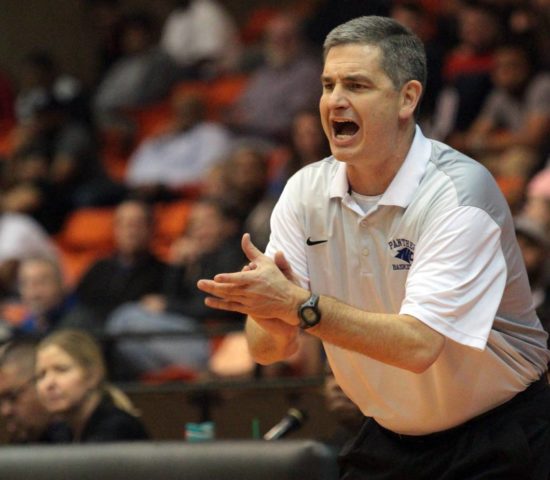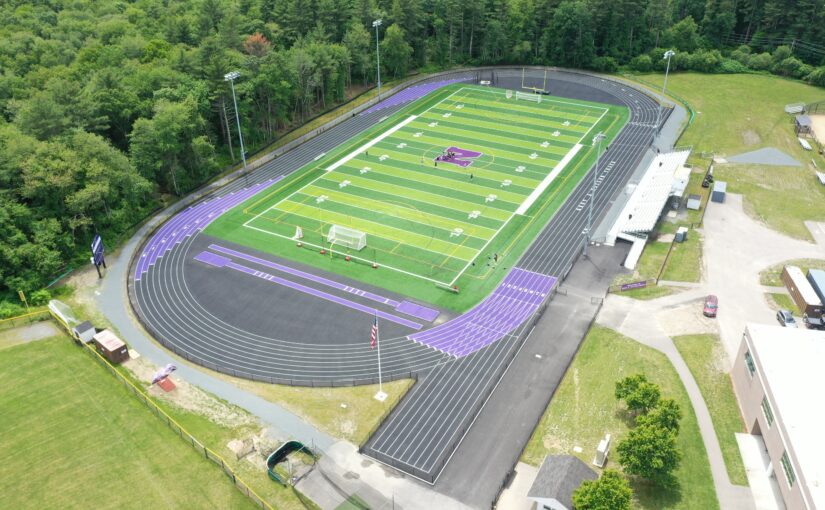Coaching Gen Z: How a veteran coach approaches the game
{Sponsored} Throughout his 25 years as a coach, Tommy Brakel has seen an evolution in what student-athletes need, how coaching impacts futures and what he feels he needs to give back to both the student-athletes and other coaches. Brakel is the head men’s basketball coach and athletic coordinator at North Crowley High School (Texas).
When Brakel began his coaching career, he was there for a paycheck. He didn’t expect that his job would become his passion or that working with student-athletes and other coaches would have such a big impact on his perspective. His career goals are now centered around the student-athletes and what tools he can provide them to help their future success after high school.
“It’s bigger than the game — bigger than winning a game or a championship. It is about winning in life,” Brakel said. It starts with the parents. At the start of each season, he meets with parents and reminds them that he isn’t here just to win championships. He lets them know that he will always keep the students’ best interests at heart, even if it requires tough calls.
The coaches at North Crowley tend to have high levels of empathy for the area kids — many of whom don’t get enough to eat at home and might have no power or poor nutrition. Even though these student-athletes don’t have the advantages of many other kids their age, that doesn’t mean coaches can reduce their standards. “What I am trying to do as an AC and coach with my coaches is help them find the balance. You can have the high empathy and still have high expectations,” Brakel said.
Besides his attitude and expectations, Brakel has distinct ways that he coaches that are unique and that have resulted in success for his team.
PRACTICE IS LIKE A GAME
In order to best prepare student-athletes for the rigors of an in-game situation, Brakel makes every aspect of practice function as it would in the game itself. Practices include time outs, halftime and have four quarters. Loud music plays during practice, reinforcing that they will need to communicate over it.
“We don’t ever pass the ball to the wing and run behind the line in a game, so we tweak every drill as much as we can to be as much like a game as possible,” Brakel said. It means they practice running to the other end of the court after an offensive drill, too. When his team gets in a game situation, the pressure isn’t as high since they’ve already worked their practices like a game.
COMMUNICATING WITH GEN Z
Part of Brakel’s approach with Generation Z — a generation raised on smartphones and technology more than any before them — is working to teach verbal communication skills. He ensures every single student-athlete leaves the program being capable of speaking to an adult who has authority while looking them in the eye.
Each student-athlete also learns skills in composing a professional email by the time they leave Brakel’s programs. “I think it still goes back, at some point, to the fact that student-athletes have to feel like you genuinely care about their success. It’s not about you — it’s about them,” Brakel said.
At the same time, Brakel meets them where they are, and he texts his team as well, noting that it may take communication through social media or texting to reach them in the first place. This communication method helps to build the trust they will need in order to let him teach them to communicate verbally and via email.
PASSING ALONG WISDOM TO NEWER COACHES
A few years ago, Brakel began speaking at BSN SPORTS coaching clinics in order to give back to the greater coaching community, after partnering with the organization for over twenty years. BSN SPORTS is the largest team sports apparel and equipment supplier in the United States, offering free coaching clinics all around the country. Brakel speaks about high empathy and high expectations, reaching kids today, building coaches in preparation for becoming head coaches, and looking at schedules in a totally new way. These are Brakel’s top tips for new and veteran coaches alike:
- Open your phone and pull up a picture of the most important person in your life. Treat decisions you make on behalf of student-athletes the way that you would want decisions made about that person.
- Don’t be afraid to learn from the people around you – even coaches from other sports may have input that could change your coaching world.
- Each year should end with reflection on what went well and how you can improve. This will help you progress as a coach.
BSN SPORTS is proud to provide excellent coaches a platform from which to share what they’ve learned over decades of coaching. To learn more about BSN SPORTS and their free coaching clinics, visit www.bsnsports.com/coachingclinics.
© 2020 BSN Sports











